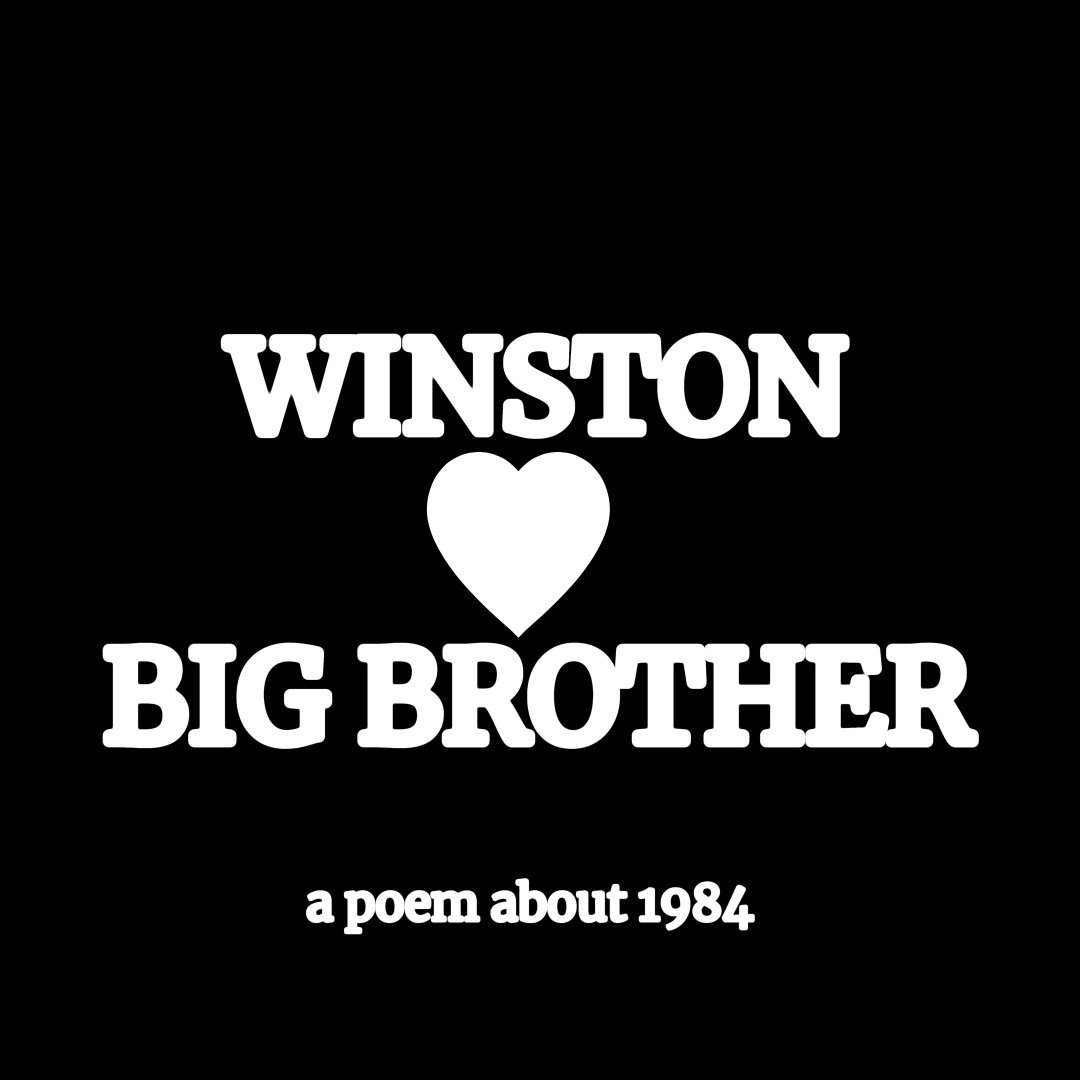Winston Loves Big Brother
A poem about 1984
Broken mind, seeing blind
There's not much I haven't left behind
Comrade O'Brian,
I apologize for the traitor I saw in my mind
Hard control by soft means
The leash is just what people need
And should you relent your grip
They'll beg to have it back it seems
-------
In my dream, where I am a man
I love Julia and no other
But as the digit I've become I must admit-
Winston Loves Big Brother
--------
We were always at war with Eurasia
A lengthy and bloody euthanasia
They want to take our unfreedoms, allegedly but incidentally-
We were always at war with East Asia
---------
"Freedom isn't free"
But contented for too long, I can't bother
in shame which long became pride I'll admit-
Winston Loves Big Brother
What is a man but... I would't know
Something which I did long but smother
I am but the symptom of his glory
Winston Loves Big Brother
Unsolicited Recommendations 6
Recently I've been too busy with other work-related activities and the national American sport of dodging bullets to consume a ton of culture from outside my little world. But what I tend to do in those time is reread and rehear stuff I already enjoy, so you know these two books have an unsolicited stamp of approval that has stood the test of time-
Erich Maria Remarque's "All Quiet on the Western Front" and Ernst Jünger's "Storm of Steel"
You might've noticed a certain uptick in movies and TV being made about the First World War. My gamble is that it's less difficult to create a relatable struggle when there's no unambiguous evil. Barring the Ottomans, who were trying their damndest to get in on it early.
That being said, knowing the events is half the struggle and getting a grip on the feeling on each side is a very different game. The American and British novelists have quite a few famous ones (like T.E Lawrence's "Seven Pillars of Wisdom" or Ernest Hemingway's "A Farewell to Arms" to name two) but the German ones are known mainly by name rather than by people having actually read them.
This is a shame, as these books show the other side of this world changing conflict. "Storm of Steel" in particular has a lot of insights into the different divisions in the German forces (Lower Saxons and Prussians for eg.) It's hard to imagine but both Germany and Italy were united countries for about 50-60 years at the time The Great War broke out. It was all duchies, kingdoms, palatinates and presumably Palpatine-nates before that.
Meanwhile " All Quiet on the Western Front" is one of the greatest anti-war novels of the modern age. Unlike Jünger's book, it is a less complex and less flowery book, but the way it talks about the feelings and trauma of Paul Bäumer and company is both fascinating and hits home very hard. I believe many of the characters in the book are archetypes of people we see around us, and Remarque's insight can teach us a lot. We all know an armchair Kantorek, a dry and witty Westhus, or an overcompensatory Himmelstoß.
The books serve as interesting counter pieces to each other. Jünger was a more philosophical, more decorated soldier while Remarque was more sensitive and more clearly scarred by what he endured. Reading both, while not providing a complete education, definitely gives a better center to understanding this conflict.
P.S
Remarque's followup, "The Way Back" is also an excellent read. The Netflix movie for All Quiet is also pretty damn good.


